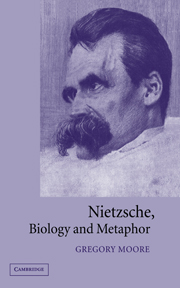2 - The physiology of morality
Published online by Cambridge University Press: 22 September 2009
Summary
After receiving from Darwin a copy of The Origin of Species and reading it with mounting horror, the Revd. Adam Sedgwick, professor of geology at Cambridge, wrote to his former pupil to admonish him:
There is a moral or metaphysical part of nature as well as a physical. A man who denies this is deep in the mire of folly. 'Tis the crown and glory of organic science that it does through final cause link material and moral … You have ignored this link; and, if I do not mistake your meaning, you have done your best in one or two pregnant cases to break it. Were it possible (which, thank God, it is not) to break it, humanity, in my mind, would suffer a damage that might brutalize it.
Unsurprisingly, Darwin bitterly resented this stinging rebuke from his erstwhile mentor, yet for many later commentators Sedgwick's objections seem wholly justified. Darwin may not, as Sedgwick assumed, have actively sought to divest nature of ulterior moral purpose and deprive human ethics of a firm foundation, but this is nevertheless precisely what the revolution which he set in motion accomplished. And its consequences were indeed potentially ‘brutalising’. For if humanity was merely one species of animal amongst others, subject to the same ceaseless struggle for life in a world bereft of the guiding hand of Providence, then selfishness had been bred into the very marrow of its being.
- Type
- Chapter
- Information
- Nietzsche, Biology and Metaphor , pp. 56 - 84Publisher: Cambridge University PressPrint publication year: 2002



